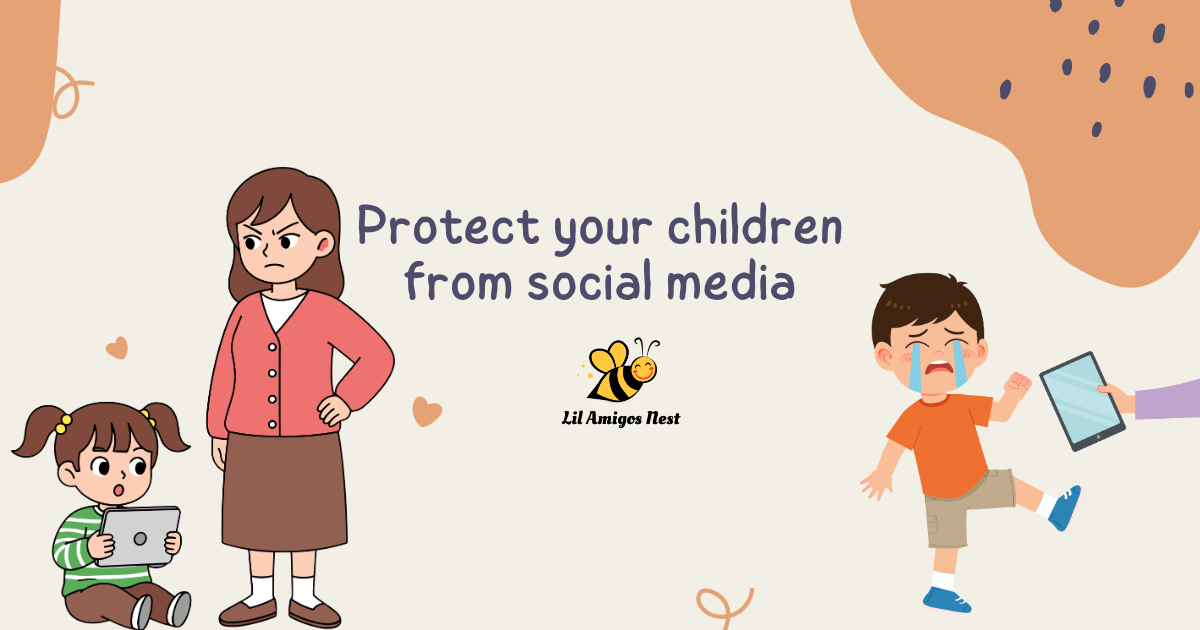Is Plant-Based Milk Safe for Kids?

Is Plant-Based Milk Safe for Kids?
As more families move toward a vegan diet, plant-based alternatives are becoming popular.
One big switch that many parents consider is replacing cow’s milk with plant-based milk. But is that really okay for your child? Can almond milk, soy milk, or oat milk give the same nutrition your child needs for growth?
This blog will guide you through everything you need to know.
What Is Plant-Based Milk?
Plant-based milk is made from nuts, grains, seeds, or legumes.
Some of the most common ones include:
-
Soy milk
-
Almond milk
-
Oat milk
-
Coconut milk
-
Rice milk
They are often used as dairy substitutes for those who follow a vegan diet, are lactose intolerant, or simply prefer non-dairy options.
Why Do Parents Choose Plant-Based Milk for Kids?
Many families are now conscious of their children’s health and lifestyle choices.
You might choose plant-based options because:
-
Your child has a dairy allergy or lactose intolerance
-
You follow a vegan diet at home
-
You are concerned about hormones or antibiotics in dairy
-
Your child prefers the taste
All of these are valid reasons. But it’s important to make sure the choice supports kids’ health in the long run.
Is Plant-Based Milk Safe for Kids?
Yes—plant-based milk for kids can be safe. But it depends on how it’s used.
Many plant-based milks are lower in protein, calcium, and healthy fat compared to cow’s milk. So, if you're replacing dairy entirely, you need to plan your kids’ diet carefully.
Not all plant-based milks are created equal. Let’s take a closer look.
Soy Milk: The Closest to Dairy
Soy milk is one of the best options nutritionally. It has almost the same amount of protein as cow’s milk.
It is also often fortified with calcium and Vitamin D. This makes it a smart choice for kids who can't drink dairy.
However, if your child has a soy allergy, you’ll need other options.
Almond Milk: Light and Low in Calories
Almond milk is popular but low in protein and calories.
It’s fine for kids who eat a balanced diet, but it should not be the main source of nutrition for toddlers.
If you’re choosing almond milk for your child, make sure it’s unsweetened and fortified.
Oat Milk: A Creamy Option
Oat milk is rising in popularity, especially for its creamy texture.
It’s higher in carbohydrates and often liked by kids for its taste. But again, it's not very high in protein.
If your child is active and eats a variety of foods, oat milk can be a good part of their daily diet.
Check for Fortification
Not all plant-based milk brands are the same. Always check the label.
Go for options that are fortified with:
-
Calcium
-
Vitamin D
-
Vitamin B12
These are important for kids' health and growth.
Unfortified versions may not give your child what they need.
Avoid Sweetened Varieties
Some plant-based milk for kids comes with added sugar.
Too much sugar is not good for kids’ safety or long-term health.
Choose unsweetened versions and avoid flavored types that may contain artificial ingredients.
This is a common tip in every trusted parenting guide.
Not a Replacement for Infants and Toddlers
Plant-based milk is not recommended as a main drink for babies under 1 year.
After age 1, if you're replacing cow’s milk, choose carefully and consult your pediatrician.
For toddlers, fortified soy milk is often the best choice if dairy is excluded.
This is a key point in any parenting blog discussing child nutrition.
Pair With a Balanced Diet
If you're including plant-based milk in your child’s diet, it should go hand-in-hand with a variety of foods.
Make sure your child is getting:
-
Protein from lentils, tofu, or nuts
-
Iron from leafy greens or beans
-
Healthy fats from seeds or nut butters
Milk benefits for kids go beyond just calcium, so build meals that support their overall growth.
This works well even in an Indian diet for kids, where dals, grains, and vegetables play a key role.
Watch for Allergies
Before introducing any new plant-based milk, watch how your child reacts.
Nut-based milks like almond milk can cause allergies. So can soy milk in some kids.
Start slow and keep an eye on any signs of discomfort or rash.
Safety comes first in every kid’s health decision.
Talk to Your Pediatrician
While many parenting blogs share tips on kids’ diets, your child’s needs may be unique.
If your child has food sensitivities, is underweight, or has specific health concerns, always check with a doctor or nutritionist before making big changes.
They can guide you on how to add plant-based milk without compromising nutrition.
How to Introduce Plant-Based Milk in Indian Homes
For Indian families used to dairy in tea, cooking, and sweets, the switch may seem tricky. But it’s possible.
Here’s how you can start:
-
Use oat milk in porridge or smoothies
-
Add soy milk to chai or hot chocolate
-
Replace regular milk in halwa or kheer with almond milk
Just make sure the milk is fortified and unsweetened.
Can Plant-Based Milk Support Growth?
The answer is: yes, but not alone.
Your child’s growth depends on a full diet. If plant-based milk is one part of a diverse, nutrient-rich diet, your child can grow well.
But relying only on almond milk or rice milk without added nutrients may not give the same milk benefits for kids.
So it’s all about balance.
The Role of Supplements
If your child follows a vegan diet, you may also need to include supplements like:
-
Vitamin B12
-
Vitamin D
-
Omega-3
Discuss this with your pediatrician. Supplements help cover any nutritional gaps.
It’s a responsible choice, not a weakness.
Homemade vs Store-Bought Plant Milk
Many parents prefer to make plant-based milk at home. This can be healthy, but it usually lacks added nutrients.
So while homemade almond milk or oat milk is natural, it should not replace meals unless you add those nutrients elsewhere.
Fortified store-bought options are safer for daily use, especially for toddlers.
Final Thoughts
Plant-based milk for kids can be safe and healthy, but only when chosen carefully.
Look for fortified versions, avoid added sugar, and match it with a balanced diet.
Soy milk is usually the best replacement for dairy, while almond milk and oat milk are good as occasional options.
Always keep your child’s unique needs in mind. And remember: your goal is not just safety, but smart nutrition.






















Please complete your information below to login.
Sign In
Create New Account